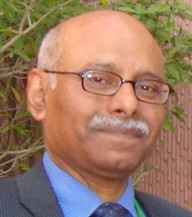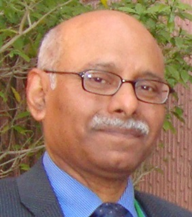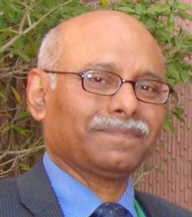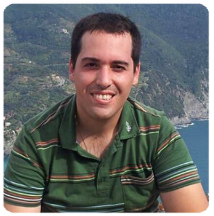Day 1 :
Keynote Forum
Sarwar Jamil Siddiqui
The Aga Khan University, Pakistan
Keynote: Global Neurology
Time : 10.00-11.00

Biography:
Dr Siddiqui graduated from Dow Medical College, Karachi, Pakistan in 1985. He trained in General Medicine and Neurology at St Margaret’s Hospital, Epping, Princess Alexandra Hospital, Harlow and St Bartholomew’s Hospital, London, England. He is also a member of American Academy of Neurology. Dr Siddiqui is Dean, Faculty of Neurology at the College of Physicians & Surgeons of Pakistan and is responsible for Neurology Postgraduate Training in the whole country which includes 24 training centers. This is his 4th consecutive tenure as Dean. He is also Chairman of the Editorial Board of the Journal of Pakistan Medical Association. His interests include General Neurology, Movement Disorder and Parkinson’s disease and Neurology Education and Training. He has a passion for music and travelling.
Abstract:
The current population on this planet is 7.66 billion. This figure is projected to be 8.55 billion by 2030. Low and middle income group countries suffer the double burden of communicable and non-communicable diseases and yet less than 8% of GDP is spent on health in these countries. Two thirds of the neurological disease burden occurs in the developing world. According to the WHO, neurologic disorders account for 11% of all of the world's premature deaths and years lived with disability. Stroke accounts for approximately 10% of deaths worldwide with 85% of stroke occurring in low-income and middle-income countries. About 70% of African countries have 4 or fewer neurologists in the country. Situation is not very different in Southeast Asia, for example Afghanistan has only one trained neurologist. This disparity in available resources and disease burden is highlighted in this talk. Unless this disparity is addressed now we cannot hope to improve health status of this planet as a whole. Three areas deserve special attention: disease burden on clinical services, Neurology education and training and neurology research in the low and middle income countries. There are many organizations and interest groups working to address this gap in the healthcare but neurological fraternity is not prominently visible on the map of global health initiative. The idea behind choosing this topic as a keynote speech is to initiate and support broad-based global efforts for the prevention and treatment of neurologic disorders; to improve neurology education and training by developing and supporting initiatives to build local capacity for neurological training, and to promote and enhance meaningful research in low and middle income countries. In addition to highlighting the magnitude of the problem this talk includes acknowledging the efforts being made to improve the situation by various interest groups and the way forward in order to achieving equity in health for all people worldwide.
Keynote Forum
Sarwar Jamil Siddiqui
The Aga Khan University, Pakistan
Keynote: Global Neurology
Time : 234

Biography:
Dr Siddiqui graduated from Dow Medical College, Karachi, Pakistan in 1985. He trained in General Medicine and Neurology at St Margaret’s Hospital, Epping, Princess Alexandra Hospital, Harlow and St Bartholomew’s Hospital, London, England. He is also a member of American Academy of Neurology. Dr Siddiqui is Dean, Faculty of Neurology at the College of Physicians & Surgeons of Pakistan and is responsible for Neurology Postgraduate Training in the whole country which includes 24 training centers. This is his 4th consecutive tenure as Dean. He is also Chairman of the Editorial Board of the Journal of Pakistan Medical Association. His interests include General Neurology, Movement Disorder and Parkinson’s disease and Neurology Education and Training. He has a passion for music and travelling.
Abstract:
The current population on this planet is 7.66 billion. This figure is projected to be 8.55 billion by 2030. Low and middle income group countries suffer the double burden of communicable and non-communicable diseases and yet less than 8% of GDP is spent on health in these countries. Two thirds of the neurological disease burden occurs in the developing world. According to the WHO, neurologic disorders account for 11% of all of the world's premature deaths and years lived with disability. Stroke accounts for approximately 10% of deaths worldwide with 85% of stroke occurring in low-income and middle-income countries. About 70% of African countries have 4 or fewer neurologists in the country. Situation is not very different in Southeast Asia, for example Afghanistan has only one trained neurologist. This disparity in available resources and disease burden is highlighted in this talk. Unless this disparity is addressed now we cannot hope to improve health status of this planet as a whole. Three areas deserve special attention: disease burden on clinical services, Neurology education and training and neurology research in the low and middle income countries. There are many organizations and interest groups working to address this gap in the healthcare but neurological fraternity is not prominently visible on the map of global health initiative. The idea behind choosing this topic as a keynote speech is to initiate and support broad-based global efforts for the prevention and treatment of neurologic disorders; to improve neurology education and training by developing and supporting initiatives to build local capacity for neurological training, and to promote and enhance meaningful research in low and middle income countries. In addition to highlighting the magnitude of the problem this talk includes acknowledging the efforts being made to improve the situation by various interest groups and the way forward in order to achieving equity in health for all people worldwide.
- Neurology | Neuroimaging | Neurosurgery | Neurophysiology | Neurochemistry | Neuropsychiatry and Mental Health | Neurological Disorders | Developmental Neurology
Location: Conference Hall

Chair
Sarwar Jamil Siddiqui
The Aga Khan University, Pakistan
Session Introduction
Mohammad Ghadirvasfi
Iran University of Medical Sciences, Iran
Title: Evaluation of Transcranial Magnetic Stimulation (rTMS) on depression and craving in patients with methamphetamine dependence
Biography:
Mohammad Ghadirivasfi was graduated in psychiatry from Iran University of Medical Sciences (IUMS), Iran. He was the head of Iran Mental Hospital for 13 years and achieved years of experience in research, teaching and administration in hospital and during this period, his effort was highly effective to establish Iranian DNA Bank for Genetic and Epigenetic Studies in Psychiatric Disorders. He is interested in improving education of medical student and residency in psychiatry. He has academic publications and is one of the authors of the Iranian curriculum of general psychiatry, addiction and risky behavior fellowship and the sleep textbook (in Persian) sponsored by IUMS (Iran University of Medical Sciences). He was the secretary of 5th Basic and clinical Neuroscience Congress in 2016 Tehran, Iran.
Abstract:
Nataliia O Melnyk
Bogomolets National Medical University, Ukraine
Title: Changers in structure of neurons of Central Nervous System on different experimental models of demyelination and remyelination
Biography:
Abstract:
Sarwar Jamil Siddiqui
The Aga Khan Ãœniversity, Pakistan
Title: Neurology training in Pakistan, a resource limited country - Opportunities and challenges
Biography:
Abstract:
Shlomi Hanassy
Hanassy R&D Ltd., Israel
Title: Introduction to octopus arm motor control neuro-biology and biomimetics

Biography:
Abstract:
Biography:
Abstract:
Rahul Srinivasan
Medical Trust Hospital, India
Title: Cervical perimedullary AVF with feeding artery aneurysm - Endovascular treatment with review of literature
Biography:
Abstract:
- Molecular and Cellular Neurology | Behavioural Neurology | Pediatric Neurology | Neuroendocrinology | Computational Neurology | Neuroinformatics | Neuroopthalmology
Location: Conference Hall
Session Introduction
Shlomi Hanassy
Hanassy R&D Ltd, Israel
Title: A model for the dynamics of stabilizing biological systems
Biography:
Abstract:
Mohammad Ghadirivasfi
Iran University of Medical Sciences, Iran
Title: Neurocognitive reward circuitry system in addiction
Biography:
Abstract:
Mihai Stelian Moreanu & Marina Cozma
University of Medicine and Pharmacy “Carol Davilaâ€, Romania
Title: Establishing the proper approach to an effective surgical treatment for the Meningioma
Biography:
